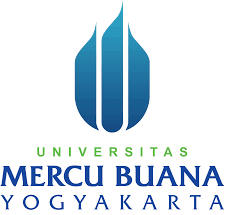Social Support as a Moderator of the Relationship between Self-Compassion and Flourishing in College Students
DOI:
https://doi.org/10.55927/fjmr.v4i10.530Keywords:
Social Support, Flourishing, Self-Compassion, StudentsAbstract
This study aims to examine the role of Social Support as a Moderator of the Relationship between Self-Compassion and Flourishing in College Students. The study population consisted of 386 final-year students in Surabaya who were writing their theses. The sampling technique used the snowball sampling method. The instruments in this study consisted of three psychological scales, namely: the self-compassion scale (α = 0.872), the development scale (α = 0.950), and the social support scale (ω = 0.890) which showed a high level of reliability. Data analysis used Moderated Regression Analysis (MRA) with the help of Jamovi software. The results showed that self-compassion had a significant positive relationship with student development (β = 0.261; Z = 8.46; p < 0.001). In addition, social support was proven to strengthen the relationship as a moderator (β = 0.00285, Z = 2.17; P = 0.030). These findings indicate that self-compassion and social support play an important role in improving the progress of final-year students. The implication is that psychological interventions focused on enhancing self-compassion and strengthening social support through counseling, social training, and mentoring programs are needed. It is recommended to develop a group-based well-being support system that integrates social support and self-awareness within the campus environment.
References
Affandi, Y.F, dalam https://www.rri.co.id/kesehatan/1181767/meningkatnya- tingkat-kecemasan-dan-kesehatan-mental-di-akhir-tahun-2024, diakses 20, Maret 2025.
Afiatin, T. (2023). The dynamics of flourishing Indonesian Muslim families: An Interpretative Phenomenological Analysis. Jurnal Psikologi UGM, 50(1), 1–14. https://doi.org/10.22146/jpsi.75183
Afiatin, T., Subandi, S., & Reginasari, A. (2023). The dynamics of flourishing Indonesian Muslim families: An Interpretative Phenomenological Analysis.Psikohumaniora,8(1),1–18. https://doi.org/10.21580/pjpp.v8i1.14382
Ausie, R. K., & Poerwandari, K. (2021). The role of Loneliness and Self- Compassion as predictors of depressive symptoms in college students. Jurnal Psikologi UNDIP, 20(2), 178–186. https://doi.org/10.14710/jp.20.2.178-186
Akbar, S., Rizdanti, S., & Putri, Y. K. (2022). Faktor-faktor yang mempengaruhi penyelesaian skripsi mahasiswa kedokteran. Jurnal Prima Medika Sains, 4(2), 67–73. https://doi.org/10.34012/jpms.v4i2.3225
Alfath, E. A., Setiyowati, N., & Chusniyah, T. (2025). Dukungan sosial dan resiliensi akademik mahasiswa terlambat lulus: Systematic Literature Review. Psikobuletin: Buletin Ilmiah Psikologi, 6(1), 12–22. https://doi.org/10.24014/pib.v6i1.27816
Allen, A. B., & Leary, M. R. (2010). Self-compassion, stress, and coping. Social and Personality Psychology Compass, 4(2), 107–118. https://doi.org/10.1111/j.1751-9004.2009.00246.x
Almisari, F., Ramadhani, R. A., & Rusdi, R. (2023). Hubungan self- compassion dengan flourishing pada mahasiswa. Jurnal Psikologi Insight, 5(1), 23–33.
Alnadi, G., Tennant, A., & Beail, N. (2021). A new measure of flourishing for people with intellectual disabilities: The development of the Multidimensional Individual and Interpersonal Flourishing Scale (MIIFS). Research in Developmental Disabilities, 113, 103927. https://doi.org/10.1016/j.ridd.2021.103927
Anindya, & Trihastuti, N. (2022). Kesejahteraan psikologis dan pengaruhnya terhadap kebahagiaan mahasiswa. Jurnal Psikologi, 27(2), 210-220.
Ausie, R. K., & Poerwandari, K. (2021). The role of Loneliness and Self- Compassion as predictors of depressive symptoms in college students. Jurnal Psikologi UNDIP, 20(2), 178–186. https://doi.org/10.14710/jp.20.2.178-186
Aziz, R. A., & Nurwardani, S. A. (2021). The role of social support on the student adversity quotient in Islamic boarding school. Indonesian Journal of Educational Counseling, 5(2), 59–66. https://doi.org/10.30653/001.202152.24
Azwar, S. (2010). Reliabilitas dan validitas. Yogyakarta: Pustaka Pelajar.
Bakar, A. A., & Osman, M. M. (2022). Human needs fulfilment: The contributing factors of human flourishing. Planning Malaysia: Journal of the Malaysian Institute of Planners, 20(3), 270–281.
Badan Pusat Statistik Provinsi Jawa Timur. 2024. ―Jumlah Mahasiswa (Negeri dan Swasta) di Bawah Kementerian Agama Menurut Kabupaten/Kota, 2021–2023.‖ 7 Agustus. Diakses 10 April 2025. https://jatim.bps.go.id/id/statistics-table/1/Mjk2MSMx/jumlah- mahasiswa--negeri-dan-swasta--di-bawah-kementerian-agama-menurut- kabupaten-kota--2021-2023.html.
Baron, R. A., & Byrne, D. (2010). Psikologi Sosial. Jakarta: Erlangga
Bluth, K., Mullarkey, M., & Lathren, C. (2018). Self-compassion: A potential path to adolescent resilience and positive exploration. Journal of Child and Family Studies, 27(9), 2901–2912. https://doi.org/10.1007/s10826-
018-1125-1
Breines, J. G., & Chen, S. (2012). Self-compassion increases self- improvement motivation. Personality and Social Psychology Bulletin, 38(9), 1133–1143. https://doi.org/10.1177/0146167212445599
Butler, J., & Kern, M. L. (2016). The PERMA-Profiler: A brief multidimensional measure of flourishing. International Journal of Wellbeing, 6(3), 1–48.
Chaniago, R. P., & Nurmina. (2023). Perbedaan flourishing pada wanita dewasa awal ditinjau dari status pernikahan di Sumatera Barat. INNOVATIVE: Journal of Social Science Research, 3(4), 3647–3657.
Christanti, M. E., & Wati, N. A. (2023). Hubungan antara dukungan sosial dengan penyesuaian diri pada mahasiswa rantau yang berdomisili di dormitory UNIKA Atma Jaya. Jurnal Psikologi Universitas Katolik Indonesia Atma Jaya, 39(1), 45–54.
Cohen, S., & Syme, S. L. (2000). Social Support Measurement and intervention: A guide for health and social scientist. Oxford University Press, Inc
Creswell, J. W. (2012). Educational research: Planning, conducting, and evaluating quantitative and qualitative research (4th ed.). Boston, MA: Pearson.
Dahlan, S. (2023). Pengaruh self-compassion dan dukungan keluarga terhadap flourishing pada mahasiswa rantau. Skripsi, Universitas Ahmad Dahlan.
Destalia, I., Novitasari, R. A., & Nofrita, N. (2024). Flourishing pada mahasiswa yang mengikuti organisasi kemahasiswaan ditinjau dari spiritualitas dan dukungan sosial. Jurnal Ilmiah Psikologi Terapan, 12(1), 20–35.
Deviarga, C., Setiasih, & Setiawan, Y. Y. (2025). Saudara sekandung, seperjuangan: Kualitas hubungan saudara dan flourishing pada dewasa awal. Psyche: Jurnal Psikologi Universitas Muhammadiyah Lampung, 7(1), 96–109. https://doi.org/10.36269/psyche.v7i1.2770
Diener, E., Wirtz, D., Biswas-diener, R., Tov, W., Kim-prieto, C., Choi, D., & Oishi, S. (2009). New Measures of Well-Being New Measures of Well- Being. August 2014. https://doi.org/10.1007/978-90-481-2354-4
Diener, E., Wirtz, Æ. D., Tov, Æ. W., Shigehiro, D. C. Æ., & Robert, O. Æ. (2010). New Well-being Measures : Short Scales to Assess Flourishing and Positive and Negative Feelings. 143–156. https://doi.org/10.1007/s11205-009-9493-y
Edwina, O. I. P., Setyana, C. M., & Sembiring, T. (2022). Role of Self- Esteem on the Relationship Flourishing through AIM (Attention, Interpretation and Memory) and Positivity for a married individual. Humanitas,6(3), 329–344. https://doi.org/10.28932/humanitas.v6i3.5549
Eva, N. (2024). Jurnal Kajian Bimbingan dan Konseling Pengaruh Dukungan Sosial terhadap Kesejahteraan Psikologis Mahasiswa dengan Religiusitas sebagai Moderator Pengaruh Dukungan Sosial terhadap Kesejahteraan Psikologis Mahasiswa dengan Religiusitas sebagai Moderator. 5(3).
Fajriati, F., & Mangundjaya, W. L. (2023). Efikasi Diri Sebagai Prediktor Munculnya Flourishing Pada Mahasiswa. Ezra Science Bulletin, 1(2), 166–182. https://doi.org/10.58526/ez-scibin.v1i2.24
Fatiy, I. T. A., Lutfianawati, D., & Harkina, P. (2023). Hubungan antara dukungan sosial teman sebaya dan kecenderungan kepribadian terhadap flourishing pada mahasiswa Universitas Malahayati. Jurnal Manajemen Informasi Kesehatan, 9(2), 375–384.
Fowers, B. J., & Owenz, M. B. (2010). A eudaimonic theory of marital quality. Journal of Family Theory & Review, 2(4), 334–352. https://doi.org/10.1111/j.1756-2589.2010.00065.x
Fredrickson, B. L., & Losada, M. F. (2005). Positive affect and the complex dynamics of human flourishing. American Psychologist, 60(7), 678– 686. https://doi.org/10.1037/0003-066X.60.7.678
Germer, C. K. (2009). The mindful path to self-compassion: Freeing yourself from destructive thoughts and emotions. New York, NY: Guilford Press
Ghozali, I. (2018). Aplikasi analisis multivariate dengan program IBM SPSS
25. Semarang: Badan Penerbit Universitas Diponegoro.
Gilbert, P., & Procter, S. (2006). Compassionate mind training for people with high shame and self-criticism: Overview and pilot study of a group therapy approach. Clinical Psychology & Psychotherapy, 13(6), 353–379. https://doi.org/10.1002/cpp.507
Gilbert, P. (2009). The Compassionate Mind: A New Approach to Life‟s Challenges. London: Constable & Robinson
Gokçen, E., Furnham, A., Mavroveli, S., & Petrides, K. V. (2012). Emotional intelligence and academic performance: A study among Turkish university students. Procedia - Social and Behavioral Sciences, 47, 2022–2026. https://doi.org/10.1016/j.sbspro.2012.06.938
Gottlieb, B. H. (1985). Social support and the study of personal relationships. Journal of Social and Personal Relationships, 2(3), 351-375. Journal of Social and Personal Relationships.
Gunawan, F. Y., & Oriza, I. I. D. (2022). Web-Based Guided Self-Help Acceptance and Commitment Therapy (ACT) to Increase Self- Compassion and Psychological Flexibility in Psychology Undergraduates Suffering Emotional Distress: A Feasibility Study. Anima, 37(1). https://doi.org/10.24123/aipj.v37i1.3033
Halim, A. R. (2015). Pengaruh Self Compassion Terhadap Subjective Well Being Pada Mahasiswa Asal Luar Jawa Tahun Pertama Universitas Negeri Semarang. Skripsi.
Hamid, N. A., Rashid, S. M., Ishak, M. S., & Wulan, R. R. (2022). Effects of Social Media Usage: The Well-Being and Flourishing of Housewives. Jurnal Komunikasi: Malaysian Journal of Communication, 38(1), 284–304. https://doi.org/10.17576/jkmjc-2022-3801-16
Handayani, P. K., Sugiharto, R. F. T., & Kusumaningtyas, N. (2022). The Self-compassion during Pandemic Covid-19: Cased in Jember District. International Social Sciences and Humanities, 1(2), 256–265. https://doi.org/10.32528/issh.v1i2.182
Hanimah, S. N., & Kelly, E. (2024). Efek moderasi dukungan sosial pada hubungan burnout akademik dan prokrastinasi akademik. Jurnal Psikologi: Jurnal Ilmiah Fakultas Psikologi Universitas Yudharta Pasuruan, 11(1), 55–68. https://doi.org/10.35891/jip.v11i1.4213
Harini, I. G. A., Sugiantara, P. Y., & Candra, I. W. (2021). Pengaruh Self- compassion Therapy terhadap Tingkat Depresi Pasien Diabetes Melitus. Jurnal Gema Keperawatan, 14(2), 185–199. https://doi.org/10.33992/jgk.v14i2.1818
Herdiansyah, D., & Puteri, N. H. (2023). Flourishing Bagi Mahasiswa Bimbingan Dan Konseling Sebagai Calon Helper. 6(1), 8–17.
Herdiansyah, D., Puteri, N. H., & Naini, R. (2024). Studi deskriptif: Prevalensi flourishing mahasiswa dan implikasinya pada bimbingan dan konseling. Coution: Journal of Counseling and Education, 5(1), 22–34.
House, J.S. 1981. Work stress and social support. Reading, MA: Addison- Wesley
Huppert, F. A., & So, T. T. C. (2013). Erratum to: Flourishing Across Europe: Application of a New Conceptual Framework for Defining Well-Being. 1245–1246. https://doi.org/10.1007/s11205-012-0030-z
Ikhsan, M. N. (2023). Pengaruh trait Big Five personality dan dukungan sosial terhadap flourishing mahasiswa menjalani perkuliahan selama masa pandemi. GUIDENA: Jurnal Ilmu Pendidikan, Psikologi, Bimbingan dan Konseling, 13(3), 588–609. https://doi.org/10.24127/gdn.v13i3.7737
Irnanda, R. C., & Hamidah. (2021). Hubungan antara Dukungan Sosial dengan Self Compassion Pada Remaja dengan Orang Tua Bercerai. Jurnal Buletin Riset Psikologi dan Kesehatan Mental 1(1), 396–405.
Jonathan, L., & Mangundjaya, W. L. (2023). Rasa Bersyukur Sebagai Prediktor Flourishing Pada Dewasa Awal. Ezra Science Bulletin, 1(2), 66–81. https://doi.org/10.58526/ez-scibin.v1i2.15
Kahairunnisa, R., Nurul, N., & Sari, S. (2025). Pengaruh dukungan sosial terhadap self-compassion pada orang tua anak dengan autisme. Jurnal Psikologi Empati, 10(1), 33–41.
Kail, R. V., & Cavanaugh, J. C. (2000). Human development: A life-span view (2nd ed.). Belmont CA: Wadsworth.
Karinda, F. B., Psikologi, F., & Malang, U. M. (2020). Cognicia Belas Kasih Diri (Self Compassion ) pada Mahasiswa Cognicia. 8(2), 234–252.
Keyes, C. L. M. (2002). The mental health continuum: From languishing to flourishing in life. Journal of Health and Social Behavior, 43(2), 207– 222.
Khairina, K., & Sahrah, A. (2022). Dukungan sosial sebagai moderator antara konflik peran ganda dengan kesejahteraan subjektif pada Wanita Angkatan Udara. Jurnal Psikologi Ulayat, 10(1), 79–95. https://doi.org/10.24854/jpu380
Kurniawan, D., & Kusumiati, T. (2024). Self-compassion dan flourishing pada perawat RSUD Salatiga. Jurnal Keperawatan dan Psikologi, 3(1), 50–60.
Lestari, W. & Wulandari, D.A. (2020). Hubungan antara Dukungan Sosial Terhadap Kecemasan Akademik Pada Mahasiswa yang Menyusun Skripsi Di Masa Pandemi Covid-19 Semester Genap Tahun Ajaran 2019/2020. Jurnal Psikologi Indonesia, 15(2), 123-134.
Liu,dkk. (2024). Modelling nonlinear moderation effects with local structural equation modelling (LSEM): A non-technical introduction. International journal of psychology: Journal international de psychologie. 60. 10.1002/ijop.13259.
Lutfianawati, S. (2024). Faktor-faktor yang memengaruhi kesejahteraan psikologis mahasiswa. Jurnal Psikologi Universitas Airlangga, 19(1), 40-49.
Madidar, S. M. (2021). Literature Review: Efektivitas Art Therapy Untuk Meningkatkan SelfCompassion Pada Orang Dengan HIV/AIDS. Konseling Komprehensif : Kajian Teori Dan Praktik Bimbingan Dan Konseling, 8(2). https://doi.org/10.36706/jkk.v8i2.14695
Makarti, P., & Tjahjoanggoro, A. J. (2022). Self-compassion training to increase resilience in inmates of Class II A Women’s Prison in Pontianak. Analitika: Jurnal Magister Psikologi UMA, 14(2), 113–122. https://doi.org/10.31289/analitika.v14i2.6880
Masturah, M., & Hudaniah, H. (2022). Flourishing dan makna hidup pada mahasiswa. Jurnal Psikologi Insight, 6(2), 1–9.
Monica, M., & Suryadi, D. (2023). Hubungan self-compassion dengan loneliness pada perempuan lajang di usia dewasa awal. Journal of Social and Economics Research, 5(2), 1104–1113.
Myres, D. G. (2013). Psychology (10th ed.). New York: Worth Publishers.
Nabilah, V. A., & Kusristanti, C. (2021). Adolescent Women with Experience of Dating Violence: Self-compassion and Posttraumatic Growth. Psychological Research on Urban Society, 4(2), 29. https://doi.org/10.7454/proust.v4i2.116
Nabila, F., & Widyastuti, S. (2023). Dukungan sosial dan flourishing pada anggota Samapta Bhayangkara Polres Kendal. Jurnal Psikologi Sosial, 24(2), 88-97.
Nadlifah, K., Setiawan, S., & Munir, A. (2023). Positive Psychology to Flourish Professional Well-being: A Qualitative study of Indonesian English Teachers’ perspective. JEES (Journal of English Educators Society), 8(1). https://doi.org/10.21070/jees.v8i1.1693
Naehrig, D., Schokman, A., Hughes, J. P., Epstein, R. M., Hickie, I. B., & Glozier, N. (2021). Effect of interventions for the well-being, satisfaction and flourishing of general practitioners—a systematic review. BMJ Open, 11(8), e046599. https://doi.org/10.1136/bmjopen- 2020-046599
Naichiendami, H. R., & Sartika, D. (2022). Hubungan Self compassion dengan Psychological Well Being pada Remaja Korban Perundungan di Kota Bandung. Bandung Conference Series Psychology Science, 2(1). https://doi.org/10.29313/bcsps.v2i1.981
Neff, K, D. (2011). Self-Compassion, Self-Esteem, and Well Being. Social and Personality Psychology Compass. Advance online publication.5(1), 1-12.
Neff, K, D. (2011). Self-Compassion: Stop Beating Yourself Up and Leave Insecurity Behind. Texas: Harper Collins Publishers.
Njotowibowo, Y., & Engry, A. (2023). Pengaruh Self-Compassion terhadap Tingkat Flourishing pada Tenaga Kesehatan di Indoenesia. 14(1), 1–16.
Nurcahyo, F. A., & Valentina, T. D. (2023). The Indonesian Version of the Flourishing Scale: Is it Reliable and Valid for Indonesian People? Evaluation & the Health Professions. https://doi.org/10.1177/01632787231215316
Oktafiani, K. N., & Ekasari, A. (2023). Self-compassion dan self-efficacy dengan flourishing pada mahasiswa tingkat akhir. 2, 91–104.
Oktanona, M., & Urbayatun, F. (2024). Self-compassion, dukungan sosial, dan flourishing pada mahasiswa rantau. Jurnal Psikologi Indonesia, 28(3), 162-175.
Patsiopoulos, A. T., & Buchanan, M. J. (2011). The practice of self- compassion in counseling: A narrative inquiry. Professional Psychology: Research and Practice, 42(4), 301–307. https://doi.org/10.1037/a0024482
Priastana, I. K. A. (2020). Comments on ―Validity and reliability of the flourishing scale in a sample of older adults in Iran.‖ Clinical Interventions in Aging, Volume 15, 1097–1098. https://doi.org/10.2147/cia.s268539
Reyes, D. (2012). Self-compassion: A concept analysis. Journal of Holistic Nursing, 30(2), 81-89.
Ratnasari, R., & Dinni, S. M. (2023). Self-Compassion dan Dukungan Sosial Teman Sebaya Dengan Resiliensi Anak Bungsu yang Merantau. Jurnal Diversita, 9(1), 51–58. https://doi.org/10.31289/diversita.v9i1.7337
Rothmann, S. (2013). From Happiness to Flourishing at Work : A Southern African Perspective. 123–151. https://doi.org/10.1007/978-94-007-6368-5
Sa’diyah, H., & Fahmawati, Z. N. (2024). Psychological Well-Being, Self- Compassion & WorkFamily Conflict in Hospital Employees. Proceedings of the 6th International Seminar on Psychology. https://doi.org/10.4108/eai.18-7-2023.2343406
Salafi, K. A., Widianti, E., & Praptiwi, A. (2023). Self-compassion among Undergraduate Nursing Students at a State University in Indonesia during the COVID-19 Pandemic. Revista Brasileira De Enfermagem, 76(4). https://doi.org/10.1590/0034-7167-2022-0585
Sarafino, E. P. (2006). Health psychology: Biopsychosocial interactions (6th ed.). Wiley
Sarafino, E. P., & Smith, T. W. (2014). Health psychology: Biopsychosocial interactions (8th ed.). Wiley.
Saudi, A. N., Bintang, R. S., Loloallo, V. L., & Zainuddin, N. I. (2024). Multidimensional Scale of Perceived Social Support (MSPSS): Uji validitas konstruk dengan Confirmatory Factor Analysis (CFA). Edukatif: Jurnal Ilmu Pendidikan, 6(4), 4236–4243.
Schwarzer, R., & Knoll, N. (2007). Functional roles of social support within the stress and coping process: A theoretical and empirical overview. International Journal of Psychology, 42, 243–252
Sekarini, A., Hidayah, N., & Hayati, E. N. (2020). Konsep dasar flourishing dalam psikologi positif. Psycho Idea, 18(2), 124–134.
Sekarini. (2021). Hubungan regulasi emosi dengan resiliensi pada mahasiswa tingkat akhir. Jurnal Ilmu Kesehatan MAKIA, 11(1), 10–15.
Seligman, M. E. P. (2002). Authentic happiness: Using the new positive psychology to realize your potential for lasting fulfillment. New York: Free Press.
Seligman, M. (2011). Flourishing a visionary new understanding of happiness and well-being. Simon & Schuster.
Septania, S., Saputra, R., & Sulastri, S. (2020). Self-Compassion, Grit Dan Positive Affect Sebagai Prediktor Kebersyukuran Mahasiswa Peraih Beasiswa Bidikmisi. Majalah Ilmu Pengetahuan Dan Pemikiran KeagamaanTajdid,23(1),76–86. https://doi.org/10.15548/tajdid.v23i1.1696
Siagian, A. P., Silalahi, T. F., & Simanjuntak, R. D. S. (2022). Hubungan antara makna hidup dan kebahagiaan pada mahasiswa perantau di masa pandemi COVID-19. Psikoborneo: Jurnal Ilmiah Psikologi, 10(2), 212– 222
Sinta, A., Zulkarnain, & Yusuf, E. A. (2020). Self-compassion in adolescent orphanages. Zenodo (CERN European Organization for Nuclear Research). https://doi.org/10.5281/zenodo.3613494
Stuntzer, S. (2014). Compassion & Self-compassion: Exploration of Utility as Potential Components of the Rehabilitation Counseling Profession. Journal of Applied Rehabilitation Counseling, 45(1), 37-44. https://doi.org/10.1891/0047-2220.45.1.37
Sugianto, D., Suwartono, C., & Sutanto, S. H. (2020). Reliabilitas dan validitas Self- Compassion Scale versi bahasa Indonesia. Jurnal Psikologi Ulayat. Advance online publication. doi: 10.24854/jpu02020- 337
Sugiyono. (2018). Metode penelitian kuantitatif, kualitatif, dan R&D.Alfabeta.
Tari, I. D. A. E. P. D., & Adnyani, N. L. G. W. (2024). Analisis flourishing pada mahasiswa Prodi X Universitas Y di era kampus merdeka. Jurnal Psikologi Terapan dan Pendidikan, 6(1), 1–10. https://doi.org/10.26555/jptp.v6i.27659
Vanderweele, T. J. (2017). Religious Communities and Human Flourishing. https://doi.org/10.1177/0963721417721526
Werner, K. (2012). Self-compassion and mental health in adolescence: An exploration of the potential mediating mechanisms. Journal of Adolescence, 35(5), 1171–1180.
Widyaningrum, N. A., & Yudhawati, D. (2023). Hubungan antara usabilitas website akademik dengan flourishing pada mahasiswa di Yogyakarta. Zenodo (CERN European Organization for Nuclear Research). https://doi.org/10.5281/zenodo.8180410
Witten, H., et al. (2019). Mental well-being and flourishing: A European perspective. Journal of Mental Health Promotion, 21(3), 143–156.
Zimet, G. D., Dahlem, N. W., Zimet, S. G., & Farley, G. K. (1988). The Multidimensional Scale of Perceived Social Support. Journal of Personality Assessment, 52(1), 30–41.
Yuqiao, Y., Xiuyu, H., Yang, L. (2021). Social Support and Academic Burnout Among University Students: A Moderated Mediation Model,. Psychology Research and Behavior Management, 14, 335–340.
Yusronuddin, M., & Tatiyani, R. (2022). Hubungan antara self-compassion dan dukungan sosial dengan kesejahteraan psikologis pada perawat di RSUP Dr. Sitanala. Jurnal Empati, 11(3), 307–315.
Zulfa, N. A., & Prastuti, E. (2020). „Welas Asih Diri‟ dan „Bertumbuh‟: Hubungan Self-Compassion dan Flourishing pada Mahasiswa. 6(1), 71–78.
Published
Issue
Section
License
Copyright (c) 2025 Berlianna Dewi Setiawan, Suhadianto Suhadianto, Suroso Suroso

This work is licensed under a Creative Commons Attribution 4.0 International License.

































